If you’re reading this, you can speak English. Wicked.
Maybe you can speak another language too – perhaps your original mother tongue, or one that you learnt at school. Even better.
Maybe, just maybe, you have mastered a third or even fourth language – if yes, I am in awe of you.
Bu there are some scary-special souls out there whose minds soak up languages like a brain-sponge. They have an insatiable appetite for more, plus, lebih!
If a person can speak six or more languages, we call them a polyglot (meaning “many-tongued”).
If they’ve got 12 or more languages under their linguistic belt, we call them a hyperpolyglot.
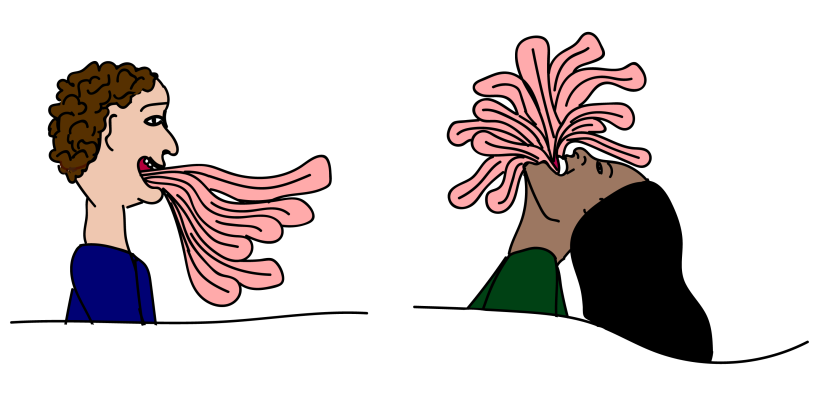
A polyglot can speak at least six languages, while a hyperpolyglot can speak at least 12.
This post, we’re gonna meet a few of these mad-awesome mofos, explore the science of polyglotism and answer the question: who is the greatest polyglot of them all?
The polyglot-est of the polyglots
To answer this question, I consulted the trusty Guinness Book of World Records, home of all feats weird and wacky. I typed “language” into the search bar on their website, returning 106 results.
I scrolled through record after record, past the longest alphabet (Khmer/Cambodian) and the loudest click of the tongue, all the way to the end. And there was no record listed for “the most languages known.”
Wat. Why?
Turns out, this whole kerfuffle is pretty controversial.
First we’ve got the problem of what the heck defines a language? That is, what’s the difference between a language and a dialect? Sometimes the distinction between the two can be blurry…
But even more difficult to pin down is what it means to know a language. Obviously, rattling off a few bonjours and je m’appelles doesn’t mean you can really speak French. So at what point do you become fluent?
Perhaps we could get a native speaker to judge how well you can hold a conversation – but this is subjective. Maybe we could define fluency by comparing vocabulary size to native speakers – but it turns out you can converse at a high level of perceived fluency with a much smaller vocab than native speakers.
And what about reading vs. writing vs. speaking? How do we compare someone who can read and write in 20 languages, to someone who can converse simply in 40?
So. The lack of objectivity in defining polyglotism means we can’t really crown the polyglot-est person on the planet. Still, anyone who can speak multiple languages is frickin’ amazing in my book.
Meet the polyglots
Guiseppe Caspar Mezzofanti
This Italian Cardinal was legendary for his language prowess. It’s reported he could speak 39 languages “with rare excellence” but some sources claim he could understand a whopping 72. Either stat is impressive considering he never even left Italy…
Mezzofanti had a super-charged memory when it came to words, but he complemented his natural aptitude with long hours studying. Lesson learnt: you gotta work yo ass off if you wanna become a language expert! Read more.
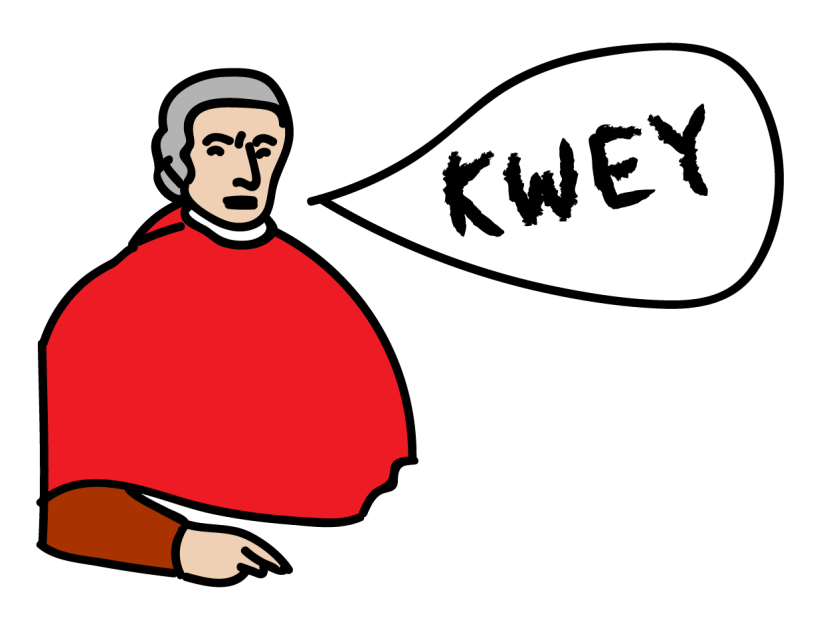
Mezzofanti is reported to have known Algonquin – a language spoken by First Nations people in Ontario and Quebec. “Kwey” means “hello.”
Emil Krebs
This German chap was passionate about languages. By the time he left high school, he could speak 12 of them. Throughout his life, he accumulated an astounding total of 65 languages – and he could tell you to “kiss my ass” in 40 of them.
After his death, Krebs’ “elite brain” was preserved and resides to this day at the C. & O. Vogt Institute for Brain Research in Germany. In 2003, neuroscientists examined his brain, and found it was wired very differently to monolingual people. But it’s unclear whether he was born with this set-up, or whether constant language learning changed the neural connections in his brain. Read more.
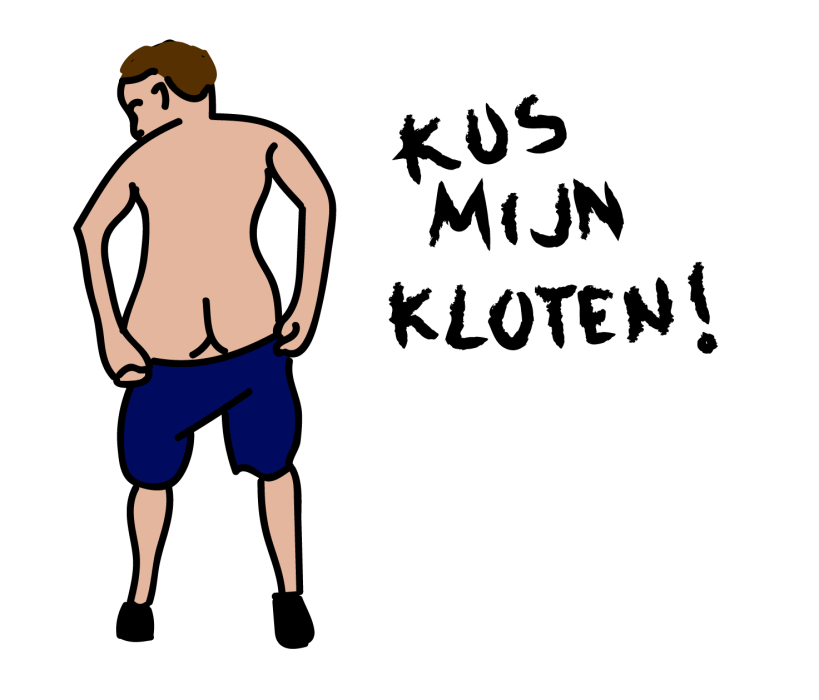
Emil Krebs could say “kiss my ass” in 40 languages. Go here if you’d like to emulate Mr Krebs.
Alexander Argüelles
During his childhood, Argüelles had an innate interest in language. But apart from high school French, he didn’t explore this interest to any depth. At university, however, the ability to read his favourite German novelists in their native tongue led him down the rabbit-hole of language learning. He spent 16 hours a day filling his brain with words and grammar, and now he can speak around 36 different tongues but has studied many more. Read more.
“I’m increasingly drawn to dead and endangered languages… I do think the loss of so many quirks and colours would leave the world a less intriguing place. It would be like visiting a botanic garden where there was only one type of plant – that thought horrifies me.”
-Alexander Argüelles, linguist
Powell Janulus
This Canadian fellow was in the Guinness Book of World Records in 1985 for “knowing more languages than any other human.” To earn this entry, he passed two-hour long conversational fluency tests with native speakers in 42 different languages. However at his peak, he claims to have known 64 languages. In 2006, Janulus suffered a stroke but has since resumed learning new lingos. Read more.
Dr Carlos do Amaral Freire
This Brazilian boss is considered perhaps the greatest modern linguistic scholar. He systematically studies two new languages every year, and has done so for the past 40 years. Consequently he has mastered 60 of them.
“I became captivated by the fascination of studying and discovering, through languages, so many other worlds, cultures and different ways of thinking.”
-Dr Carlos do Amaral Freire, linguist
Swami Rambhadracharya
Rambhadracharya is the ultimate slashie: a Hindu religious leader, philosopher, poet, educator… as my friend would say, he’s DA MAN. He can speak 22 languages and is considered a scholar in 14 of them. He writes poems and plays in a variety of lingos – but he can’t physically read or write. Rambhadracharya’s been blind since the age of 2 months, so he learns by listening and composes by dictation. Read more.
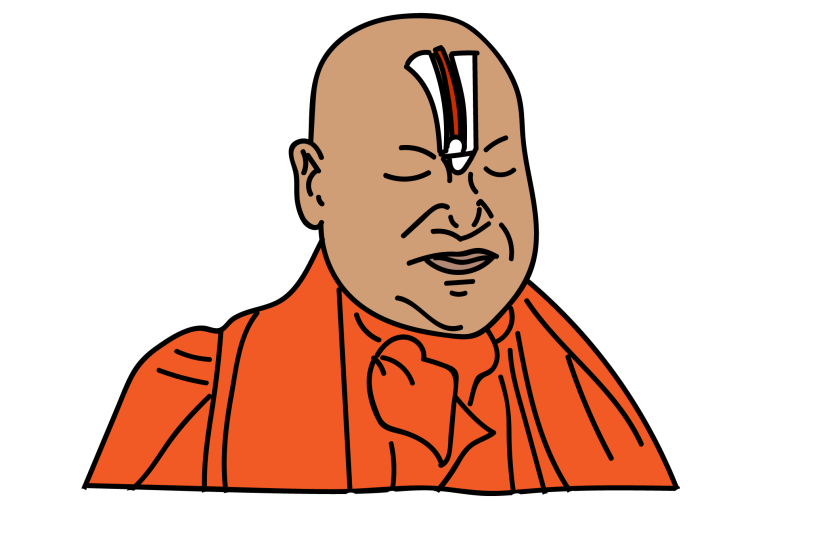
Rhambhadracharya is an accomplished polyglot (among many other things).
Sir John Bowring
A former Governor of Hong Kong and a political economist, this high-powered Englishman had a penchant for literature and language. It’s reported that he knew 200 (!) languages and could speak 100 of them. Whether these numbers are accurate, it’s difficult to say. But even if they are exaggerated, he clearly had an extraordinary talent and passion for language. Read more.
I’ve just picked a few polyglots so this is by no means an exhaustive list. Check out good ol’ Wikipedia for more multilingual masterminds.
Where da ladies at?
You’ve probably noticed that the above list is a real sausage fest. It’s true: lady lingo-lovers are relatively hard to come by. Others have noted this gender-skewing in the polyglotism world, but they haven’t found a good reason for it yet.
I had a good dig around and unearthed a couple of female polyglots:
Susanna Zaraysky
Zaraysky has studied 11 languages and can speak 8 of them fluently, and she is a great believer in the power of music to teach language. She’s written a few books and travelled the world, plus she’s passionate about inspiring more women to become multilingual. Read more.
Lomb Kató (or the westernised version, Kató Lomb)
Leaving behind her physics/chemistry background, Lomb took up languages and learned at least 16 (and maybe as many as 28). Lomb’s love of languages took her around the world as an interpreter and she also churned out a few books. She was one of the first simultaneous interpreters. Her drive to learn was characterised by unwavering determination and self-motivation. Read more.
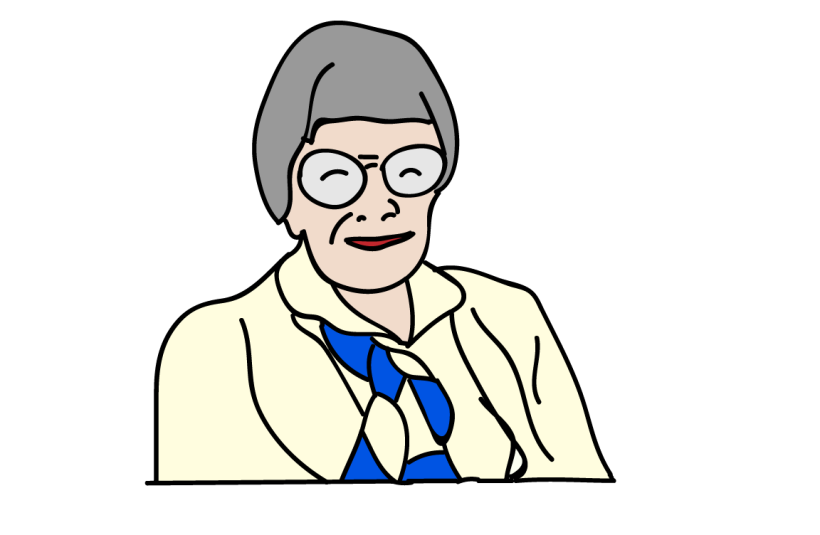
Lomb Kató dedicated her life to languages and was one of the first simultaneous interpreters.
Savant or simply obsessive?
So what’s the deal with these tongue-twisting individuals? Are they wired differently from the rest of us?
Some have suggested that hyperpolyglotism is in some way linked to autism and/or savant syndrome.
But others believe that it’s simply a matter of hard work. Anyone can become a polyglot. (But certain personality traits and conducive life circumstances can help.)
And then of course, there’s those who reckon it’s a bit of both.
If there’s one thing you can take from these stories of polyglots, I reckon that it’s never too late to start. Wanna learn a language? Just do it!
Here’s an idea…
Here at Mother Tongues you’ll know we’re particularly interested in endangered languages. So ya know what’d be wicked? If polyglots could dedicate some of their burly brainpower to learning these disappearing tongues. What do you reckon?
Can you speak multiple languages? Let me know which ones in the comments!
PS – after researching this post, I’ve put Babel No More: The Search for the World’s Most Extraordinary Language Learners on my to-read list. Maybe you’d like to as well 🙂
UPDATE:
Global WordPress Translation Day is coming up on Sunday April 24th. If you’re a language aficionado who’d like to help translate WordPress, check out this blog post and get on board. Woohoo!

April 19, 2016 at 2:54 am
Reblogged this on Ellen Rykers.
LikeLike
April 19, 2016 at 3:22 am
Nice article.
You are right to point out the lack of objectivity when it comes to precisely defining polyglotism. It’s even contentious as to what, precisely, constitutes a language (at least, among laymen; less so among linguists).
In terms of somewhat official languages, I speak British English, Swiss French, Standard German, and intermediate Mandarin Chinese. My knowledge of all of those is diluted (corrupted?) by exposure to variants of each of them. I emphasise the “Standard”, as I also speak Alemannic German, which is linguistically distinct (and spoken in Switzerland, Germany, Austria, Liechtenstein, and in pockets of France, Italy, the United States and Venezuela), but is nowhere an official language. It enjoys proud local grassroots support, and there’s even an Alemannic Wikipedia 🙂
Personally, I like to distinguish between laymen’s definitions of multilingualism and language, on one hand, and the linguists’ definitions, on the other. “High German”, for example, can refer to different things, depending on how technically you look at it.
LikeLiked by 1 person
April 19, 2016 at 4:44 am
Puts me in a bizarre space of least learning 2 languages a year. Great information regarding people who have set the bar so high and yet achieved.
LikeLiked by 1 person
April 19, 2016 at 9:00 am
I loved your article. To think that there are all these amazing people and I’m struggling with my third language.
LikeLiked by 1 person
April 19, 2016 at 1:22 pm
Hyperpolyglot, really.
We clearly are wired differently.
Speaking 100 languages is just sheer brain pwer.
LikeLike
April 19, 2016 at 11:25 pm
Yes it is likely that some people have a natural aptitude for languages. But it is also important to note that learning a second language fundamentally changes the architecture of your brain – so it’s easier to learn a third and fourth language (and so on). Many of the listed polyglots also put HUGE amounts of time into learning languages.
LikeLiked by 1 person
April 21, 2016 at 11:28 am
Precisely.
And the world would be a better place if we each try learn one or two more languages. People will understand each other better.
LikeLiked by 1 person
April 19, 2016 at 6:18 pm
english is not a “mother tongue” it is a father tongue. English is a patriarchal language laced with sexism and racism. You need to to know that distinction if you’re going to use the term correctly. Have you read Ursula Snyder’s speech about mother tongues? I can give it to you if you’re interested.
LikeLiked by 1 person
April 19, 2016 at 11:27 pm
Thank you for sharing your perspective. I would definitely be interested in reading that speech if you have a link.
LikeLike
April 20, 2016 at 4:18 pm
Ursula K. Le Guin gave the following address at the 1986 Bryn Mawr College Commencement: https://serendip.brynmawr.edu/sci_cult/leguin/ It was first published in a collection of essays, Dancing At The Edge of the World: Thoughts on Words, Women, Places, New York: Harper & Row, 1989 (147-160).
Thanks for replying and your openness. 🙂
LikeLiked by 1 person
April 24, 2016 at 6:10 am
Thanks heaps for sharing! That is a fantastic & fascinating speech by Le Guin 🙂
LikeLike
April 25, 2016 at 7:33 am
I’m so glad you found it to be so. 🙂 She’s an amazing writer. Anyway I became interested in your blog for a lot of reasons regarding mother tongues and nature. Really glad you’re blogging about these.
LikeLiked by 1 person
April 19, 2016 at 10:33 pm
English, Spanish, working on Portuguese. Three feels like I’m just getting started.
LikeLiked by 1 person
April 20, 2016 at 2:50 am
Smattering of Spanish in grade school, studied French through high school, waived college proficiency but studied German and Latin in college, Anglo-Saxon in grad school–and that was the most fun yet. But it wasn’t till I sat down to learn my grandpa’s language of Swedish “NOT by the book”–that is, NOT grammar first–that I was reading newspaper articles and Facebook comments in no time! Because at the tender age of 47 I finally wanted the “immersion” experience–actually using a language to communicate in the everyday.
LikeLiked by 1 person
April 22, 2016 at 7:30 pm
Why doesn’t the Guinness Book of World Records use the test they had Powell Janulus take in order to determine who can speak the most languages? I understand that the definition of what it means to know the language is blurry, but that test seems like a pretty good way to measure proficiency, at least.
LikeLiked by 1 person
April 24, 2016 at 6:09 am
Good question! They did actually include this record up until the 1998 edition, and it was held by a man named Ziad Fazah who claimed to speak and write 58 languages. But he then appeared on a Chilean chat show and was unable to answer simple questions in several of the languages he claimed to know. (See this Youtube video: https://www.youtube.com/watch?v=_XA1Ifi-ntE ) Since then, the Guinness World Records hasn’t listed anyone. But I do agree, the proficiency test they used for Powell Janulus was pretty fair.
LikeLike
April 22, 2016 at 7:30 pm
Also I’m so impressed with all these people. I can speak like, 1.3 languages at best! (English and Mandarin Chinese.)
LikeLiked by 1 person
May 1, 2016 at 8:25 am
I speak Spanish, Italian, and Japanese, and I have plans to start on Mandarin and Russian and Polish soon. It’ll be just the beginning. I’ll learn as many as I want because I do truly believe I have the gift of language-learning. Some people have a math brain, or a science brain, but langauge brains are just as exciting and just as remarkable! We connect the world.
LikeLiked by 1 person
May 5, 2016 at 12:00 pm
Wonderful! Hell yeah you rock that language brain 🙌
LikeLike
October 18, 2016 at 10:14 pm
I speak English (my mother tongue), Spanish (on the border between conversational and fluent), German (low intermediate), French (advanced beginner), and Italian (intermediate beginner). I only started learning Spanish about to years ago, French and German have been about four month, and Italian is only about two months or so. Even so, I am doing language exchanges with native speakers in all but Italian, and I’ll start looking for an exchange partner in a couple of weeks for Italian. I also recently (within the past 3 months) began learning Russian, Hebrew, Norwegian, Irish, and Vietnamese, but I’m hesitant to list them because I am still very much a beginner in them. I love languages, and eventually I would like to be fluent in at least 10!
LikeLike
December 5, 2016 at 2:38 pm
Hey! I really like your post. Its pretty interesting. As an avid language learner and linguistics enthusiast, it gave me an insight into the realm of cultures and languages 😀 I’ve recently started blogging about languages and linguistics and would love for you to check out my blog and give it a follow 🙂 It would be great if you could give me feedback as well 🙂
https://eudaimonicpolyglot.wordpress.com
Apart from English, I speak Gujarati (my mother tongue), Hindi, Marathi, French, Spanish, a teensy bit of Brazilian Portuguese and Arabic.
LikeLike